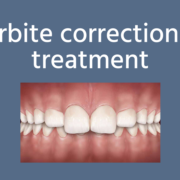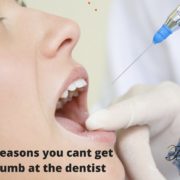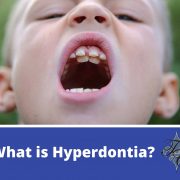Overbite correction and treatment
Overbite is a condition in which the upper front teeth overlap the lower front teeth. Overbite is not necessarily a bad thing; most people have some degree of overbite. It’s when the overbite is too little or too large that problems may arise. An excessive or large overbite, also called a deep bite, can cause unhealthy teeth wearing, aesthetic concerns, and in some instances even jaw pain.
Types of Overbites
Vertical Overbite – Where the top teeth significantly overlap the bottom teeth.
Horizontal Overbite – Occurs when the top teeth protrude over the bottom teeth.
How is an Overbite Caused?
The most common cause of an overbite is the shape and/or size of the jaw or the teeth. This could mean having too much room in the jaw area or too little room for accommodation of one’s teeth size.
Other causes for an overbite:
- Genetics
- Teeth grinding
- TMJ
- Thumb sucking
- Excessive pacifier use
- Overuse of bottle
- Nail biting
- Chewing on writing utensils
How to correct an Overbite?
Children and Teens
- Removal of baby teeth (making room for permanent teeth to grow in straight)
- Growth modification device (used best during growth spurts) – helps to better position the jaw
- Braces – slowly moves the teeth to correct the overbite as well as the jaw
- Retainers – device used post-braces that help to keep the teeth in place
Adults
- Braces – move only the teeth to correct an overbite
- Teeth removal – dentists and orthodontists try to avoid this procedure but will do this in very severe overbite cases to allow the teeth more freedom to move.
- Surgery – jaw problems for skeletal-type overbites can only be corrected with surgery for adults.
Schedule an appointment today to discuss potential treatment options that may be suitable for you or your loved one.





